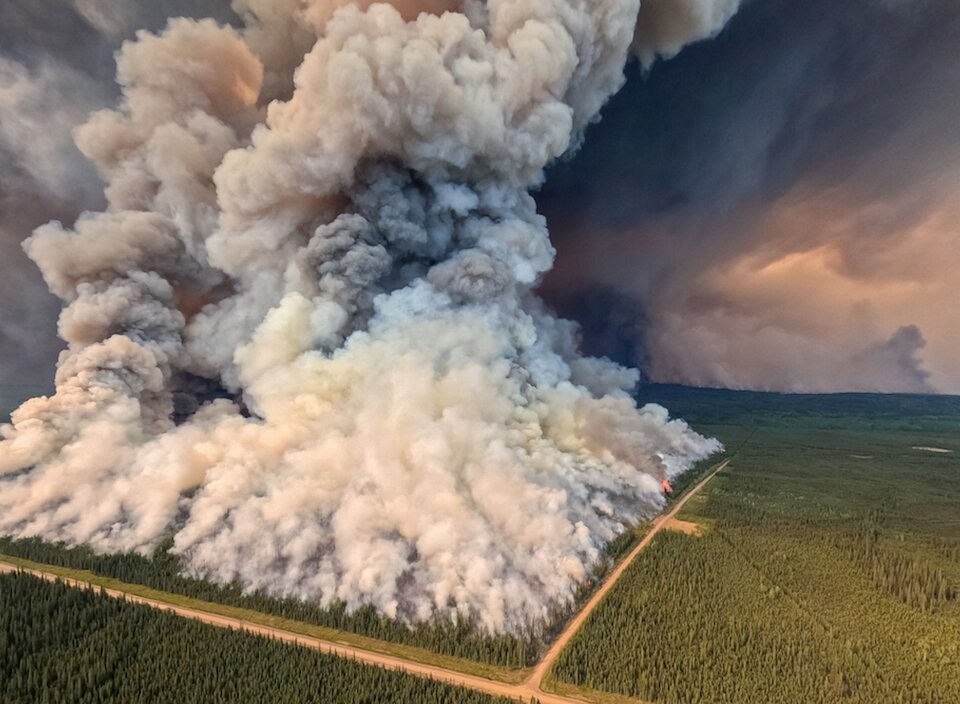The most destructive on record, Canada’s 2023 wildfire season burned 172,000 square kilometres — an area larger than South Korea and Ireland combined.
Past studies have attributed the record season to an and fire weather made worse by climate change.
Now, new , published in the Proceedings of the National Academy of Sciences Tuesday, has found warmer North Atlantic waters and reduced sea ice in the Barents Sea could be responsible for 80 per cent of the fire weather that hung over Canada in 2023.
The study found the warm ocean temperatures gave rise to a regional pocket of ascending air over the Atlantic and descending air encircling Canada. That created hot and dry local conditions.
The authors, largely drawn from Peking University’s Department of Atmospheric and Oceanic Sciences, also found that diminished sea ice led to a high-pressure centre that strengthened dry winds coming out of Canada’s north.
Combined, the lack of sea ice and warm ocean temperatures made dry and hot conditions worse, and set the stage for ignitions and the spread of fires throughout the season.
“These combined mechanisms lead to prolonged droughts, heat waves, and increased northerly winds, creating favourable conditions for the generation and southward spread of wildfires,” wrote the authors.
The study states that the 2023 wildfire season should be mainly attributed to that year’s changes in sea ice and ocean temperature — not general global warming.
However, the authors also acknowledge that the state of the sea ice and ocean temperatures in 2023 may have been made worse by global warming colliding with natural variability.
“To the best of our knowledge, this is the inaugural study to identify these climate drivers for the 2023 Canadian fire season, and it underlines the imperative for policymakers to confront the challenges presented by climate change,” they wrote.




